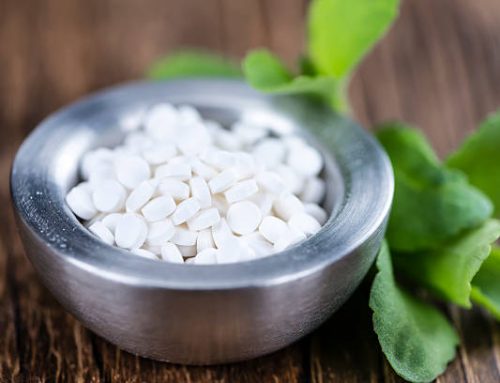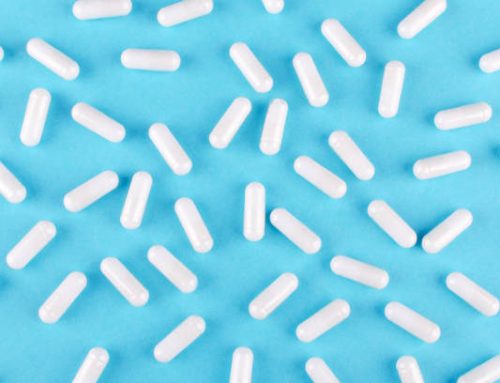Are you feeling sluggish and low on energy? Do you struggle to get through the day without feeling fatigued? If so, it’s time to turn to the magic of iron! Most of us know that iron is an essential mineral for our body, but did you know it’s one of the keys to unlocking your full potential? From boosting your metabolism and strengthening your immune system to improving your mood and cognitive function, iron is a true champion of human health. So, let’s dive into the world of iron and discover how you can “Iron Up” to feel your best and achieve your goals!

1. Fuel Your Body: Discover the Power of Iron to Boost Your Health
Iron is one of the most essential minerals for our body, and yet, it is often overlooked in our daily diets. This crucial mineral plays a crucial role in carrying oxygen throughout the body, supporting metabolism and energy production, and boosting the functioning of our immune system. Unfortunately, iron deficiency is also the most common micro-nutrient deficiency worldwide, affecting over 30% of the global population.
The power of Iron to Boost Your Health
Iron is a powerhouse mineral that can provide the fuel your body needs to function at its optimal level. Here are some of the ways in which iron can boost your health:
- Increases energy levels: Iron is a crucial component in the production of hemoglobin, which carries oxygen to the various parts of the body, including the muscles. Thus, consuming sufficient iron can help increase energy levels and reduce fatigue.
- Supports cognitive function: Iron plays a crucial role in cognitive function, including memory, focus, and attention. Adequate levels of iron in the body can support mental clarity and help reduce brain fog.
- Boosts immune system: Iron is essential in the functioning of your immune system, helping your body to fight off infections and diseases. Iron deficiency can negatively impact the immune system, causing a heightened risk of infections and illnesses.
- Helps maintain healthy hair, skin, and nails: Iron is critical in supporting the growth and repair of tissues in the body, including the hair, skin, and nails. A lack of iron can cause brittle nails, hair loss, and dull skin.
How to Boost Iron Levels
Iron-rich foods should be consumed daily to maintain adequate levels of this crucial mineral. Here are some great sources of easily absorbable iron:
-
- Lean meats, poultry, and fish
- Beans and legumes
Dried fruits, nuts, and seeds
- Green, leafy vegetables
Supplements may also be necessary for those with iron deficiency or malabsorption. Be sure to consult with your healthcare provider before adding supplements to your regimen.
Iron is a critical mineral for your body to function optimally. Include iron-rich foods in your diet, and watch your energy levels increase, your cognitive function improve, and your overall health thrive!
2. Iron Up: Simple Steps to Increase Your Iron Intake and Feel Better
Welcome to the ultimate guide to boosting your iron intake! If you’re feeling tired, weak, or just not quite yourself, you may be suffering from an iron deficiency. Iron plays a crucial role in transporting oxygen throughout the body, so when we don’t get enough of it, our energy and overall health can suffer. But don’t worry, with a few simple steps, you can iron up and start feeling like your best self again!
Step 1: Know Your Sources
Iron can be found in a variety of foods, so there’s no need to turn to supplements. Here are some iron-rich foods to add to your grocery list:
- Red meat
- Poultry
- Fish
- Beans and lentils
- Dark leafy greens (like spinach and kale)
- Nuts and seeds
- Iron-fortified cereals and breads
Step 2: Get Creative in the Kitchen
Now that you know where to find iron, it’s time to get cooking! Here are some simple ways to add more iron to your meals:
- Include beans or lentils in your soups, stews, and salads
- Add chopped nuts to your oatmeal or yogurt
- Swap your regular pasta for a type made with lentils or chickpeas
- Use spinach as a base for your smoothies
- Pair iron-rich foods (like beef and broccoli) together for a double dose of the mineral
Step 3: Boost Your Absorption
Consuming iron-rich foods is important, but so is ensuring that your body is able to absorb the mineral. Here are some tips for boosting absorption:
- Pair iron-rich foods with vitamin C-rich foods (like citrus fruits, bell peppers, and tomatoes) to help your body absorb iron more easily
- Avoid consuming iron with calcium-rich foods, as calcium can inhibit iron absorption
- Consider cooking with cast iron cookware, as small amounts of iron can transfer to your food while you cook
Step 4: Track Your Progress
After implementing these simple steps, it’s important to track your progress to ensure that you’re getting the iron your body needs to function at its best. Consider keeping a food journal to log your intake and make adjustments as needed. Remember, boosting your iron intake doesn’t have to be complicated. With a little creativity and know-how, you can iron up and elevate your health!
3. Iron-Laden Foods: Eating Your Way to a Stronger Body
Are you looking to increase your iron intake and achieve a stronger body? Look no further than your plate! Incorporating iron-rich foods into your diet can help you meet your daily iron needs and give you an energy boost.
Leafy greens, such as spinach and kale, are excellent sources of iron. They are also high in vitamin C, which aids in iron absorption. Other iron-rich vegetables include broccoli, Brussels sprouts, and sweet potatoes.
- Eating lean meat, such as beef and chicken, can also help up your iron intake.
- Seafood, like clams, oysters, and tuna, contain plenty of iron and other essential nutrients.
Plant-based sources of iron include lentils, beans, and tofu. Incorporating these foods into your diet can be easy and delicious. Try a bean salad or stir-fry with tofu and veggies.
Don’t forget about snacks! Nuts, seeds, and dried fruit are also great sources of iron. Almonds, cashews, and pumpkin seeds make for a filling and nutritious snack.
By incorporating iron-rich foods into your meals and snacks, you can nourish your body and achieve your health goals. Remember, a stronger body starts with what you put on your plate.
4. Iron-Clad Benefits: How Increasing Your Iron Intake Can Transform Your Life
Iron is an essential mineral that plays a crucial role in maintaining optimal health. In fact, it is one of the most important nutrients that our body requires to function properly. From increasing muscle strength to keeping the immune system healthy, there are many reasons why you should increase your iron intake. Here are some iron-clad benefits that can transform your life:
1. Increased Energy Levels
Iron is required for the transportation of oxygen in the bloodstream. Low iron levels can lead to anemia, which can make you feel tired and drained. Increasing your iron intake can help boost your energy levels and combat fatigue.
2. Improved Brain Function
Iron plays a vital role in brain function and development. It helps in the production of neurotransmitters, which are essential for the communication between brain cells. Low iron levels may result in impaired cognitive function, so increasing your iron intake can improve your memory and overall brain function.
3. Better Athletic Performance
Iron is important for maintaining optimal health and fitness. It helps in the production of red blood cells, which carry oxygen to the muscles. Iron-deficient athletes may experience a decrease in performance because of reduced oxygen delivery to the muscles. Increasing your iron intake can help improve your endurance and overall athletic performance.
4. Enhanced Immune Function
Iron is critical for the healthy functioning of the immune system. It helps in the production of white blood cells, which are essential for fighting off infections and diseases. Low iron levels can weaken the immune system and make you more susceptible to illnesses. Increasing your iron intake can boost your immune system and help you stay healthy.
5. Healthier Skin and Hair
Iron is important for maintaining healthy skin and hair. It helps in the production of collagen, which is essential for skin elasticity, and also helps in the production of keratin, which is essential for hair health. Low iron levels can result in brittle hair and dry skin. Increasing your iron intake can help improve the health and appearance of your skin and hair.
In conclusion, increasing your iron intake can have a profound impact on your health and wellbeing. Incorporating iron-rich foods into your diet, such as red meat, poultry, fish, beans, and leafy greens, can help you reap the numerous benefits of this essential mineral. So, start incorporating iron into your life and experience the transformational benefits it can bring!
5. From Sluggish to Dynamic: The Energizing Effects of Iron-rich Foods
The Energizing Effects of Iron-rich Foods:
If you often feel drained and sluggish, you might not be getting enough iron in your diet. Iron is a vital nutrient that plays a crucial role in the body, from supporting the immune system to helping carry oxygen to the cells. When you don’t have enough iron, your energy levels can plummet, leaving you feeling tired and listless. Thankfully, there are plenty of delicious foods that are packed with iron to help you recharge and feel energized throughout the day.
Here are five iron-rich foods to help you feel your best:
- Spinach: This leafy green is a powerhouse of iron, with around 3.5 milligrams of iron per cooked cup. Spinach is also rich in other nutrients like vitamins A and C, folate, and magnesium, making it an excellent addition to any diet. Add it to smoothies, salads, or sautéed with other veggies for a boost of iron.
- Oysters: These delicate shellfish are another fantastic source of iron, with up to 8 milligrams of iron in a three-ounce serving. Oysters are low in calories but high in other nutrients like zinc, vitamin B12, and omega-3 fatty acids, making them a healthy and delicious addition to any meal.
- Beans: From kidney beans to lentils, beans are a budget-friendly source of iron, with up to 2.5 milligrams of iron per half-cup serving. They’re also high in fiber and protein, making them an excellent choice for vegetarians and vegans. Try adding beans to soups, salads, or as a side dish to upgrade your iron intake.
- Lean Red Meat: If you’re a meat eater, lean red meat like beef and lamb is an excellent source of iron. A three-ounce serving of beef contains around 2.5 milligrams of iron, along with plenty of protein and B-vitamins. Just be sure to choose lean cuts and keep your portion sizes in check to keep your heart healthy.
- Tofu: For vegetarians and vegans, tofu is an excellent source of iron, with around 3.5 milligrams of iron per half-cup serving. Tofu is also low in calories and high in protein, making it a versatile addition to your diet. Try adding cubed tofu to stir-fries or marinating it for a flavorful protein boost.
By incorporating these iron-rich foods into your diet, you’ll be giving your body the nutrients it needs to function at its best. From spinach and oysters to beans and tofu, there are plenty of delicious and healthy options to choose from. So why not upgrade your plate today and feel the energizing effects of iron?
Now that you know the power of iron, it’s time to start boosting your body and feeling energized. Whether you introduce more iron-rich foods in your diet or take supplements, the benefits are worth it. Remember, a healthy body is a happy body, so Iron Up and feel the magic!
FAQ:
I. What are iron supplements, and why do I need them?
Iron supplements are dietary supplements that contain iron. They can come in different forms, like a pill or a liquid. You may need them if you have low iron levels, which can lead to anemia and symptoms like fatigue, weakness, and shortness of breath.
II. Can I get enough iron from my diet?
Yes, you can! Iron-rich foods like red meat, poultry, seafood, beans, and fortified cereals can provide the daily recommended intake of iron. However, some people may have trouble absorbing iron from food, and that’s when supplements can come in handy.
III. Can iron supplements cause side effects?
Iron supplements can cause side effects like constipation, nausea, and stomach pain, especially if taken in high doses. That’s why it’s important to follow the dosage recommended by your healthcare provider or the supplement label.
IV. Can iron supplements interact with other medications?
Yes, they can. Iron supplements can interact with medications like antibiotics, antacids, and some cholesterol-lowering drugs. That’s why it’s essential to tell your healthcare provider about all the medications, supplements, and vitamins you’re taking.
V. How long does it take for iron supplements to work?
It depends on the severity of your iron deficiency and the dosage of the supplement. Some people may feel better within a few days, while others may take weeks or months to see improvement. It’s essential to keep taking the supplement as prescribed and to follow up with your healthcare provider for blood tests to monitor your iron levels.




